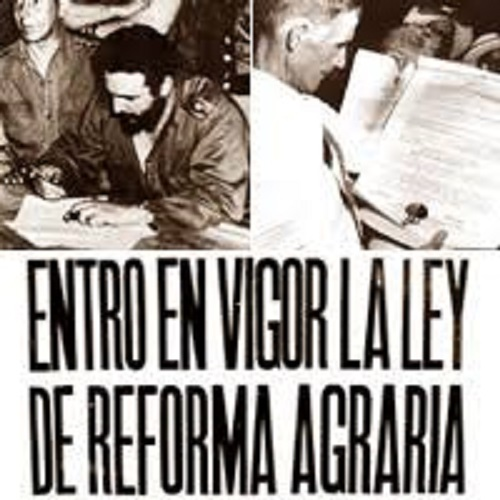
By María Josefina Arce
Illiteracy, unhealthiness, malnutrition and exploitation of the peasantry who did not own the land they worked from sunrise to sunset was the panorama of the Cuban countryside, denounced by the historic leader of the Cuban Revolution, Fidel Castro, in his defense plea in the trial for the assault on the Moncada barracks, in Santiago de Cuba, on July 26, 1953.
Most of the arable land in the Caribbean nation was in the hands of large foreign companies and Cuban landowners, who increased their coffers with the work of the peasants.
But the revolutionary triumph of January 1959 would change this unjust situation. On May 17 of that same year the Agrarian Reform Law was promulgated, promised by Fidel in his defense plea, known as "History will absolve me".
Sixty-five years have passed since that historic moment, which marked the beginning of the necessary transformation of the Cuban countryside and the improvement of the living conditions of peasant families, constantly threatened by eviction.
Signed at the Rebel Army Headquarters in La Plata, in the Sierra Maestra, this transcendental measure of the first months of the revolution led to the confiscation of all properties of more than 400 hectares and the delivery of the land to the peasants. More than 100 thousand families were benefited.
The revolution made the dream of the rural workers of owning the land they worked a reality. Years later, Fidel would say about that historic event that the Agrarian Reform Law of May 1959 liberated the peasant masses and agricultural workers.
This law was followed by a second Agrarian Reform Law in October 1963. It put a definitive end to the latifundia and the rural bourgeoisie, which, allied with imperialism, used its resources to halt the advance of the revolution.
But the change that was beginning in the Cuban countryside also included the social aspect. The peasants would see how they would have free access to education and health care, and other human rights that the revolution made available to all.
Over the years, a series of measures have been implemented to promote the development of agriculture, an area that has not been exempt from difficult moments due to the impact of meteorological events such as hurricanes and the U.S. blockade that hinders the acquisition of inputs, agricultural machinery and fuel.
With the first agrarian reform law, an old debt was settled with the Cuban peasantry, until then exploited and discriminated against, but in addition, sovereignty over an essential resource such as land was recovered.

